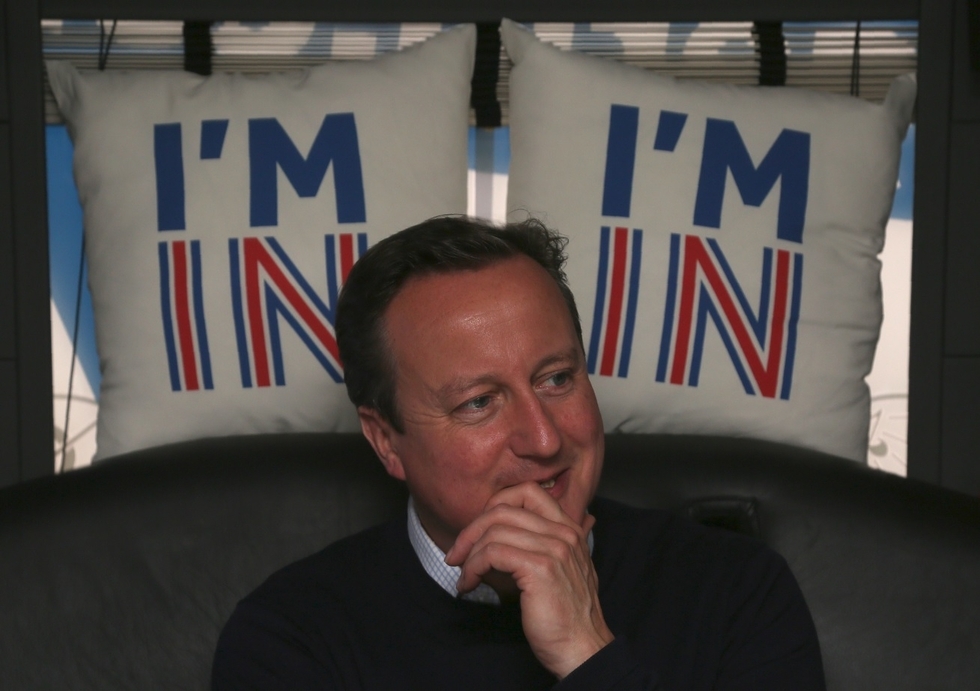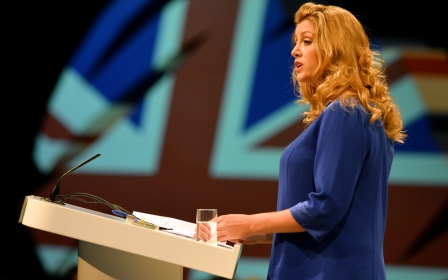Brexit could have a bigger impact on Europe than on the UK

Britain will hold a referendum on 23 June on whether or not to leave the European Union. Even if the popular vote is to “stay in,” it has already shaken Europe at a time when the bloc is facing some of its toughest challenges.
In April, voters in the Netherlands overwhelmingly rejected closer ties to the EU in a referendum about the group's relations with non-member Ukraine. Initiated by a Eurosceptic satirical website [called GeenStijl] the referendum in the Netherlands yielded a much more effective result than raising objections to a trade agreement signed by the 27 members of the union.
If the vote in the UK goes the same way, the content of EU-related discussions will inevitably change.
The only way for the EU to survive the Brexit voting in June is not to face any more referenda like the one held in the Netherlands. In fact, this may still be possible despite the negative atmosphere. The EU may still pass the June test because Eurosceptics are relaxing for a while in the wake of the Dutch victory.
Nowadays, news headlines about Britain and the EU referendum and the newly formed political axis backing Brexit brings to mind the Scottish referendum in 2014. The language, arguments and political reflexes adopted by Scottish independence campaigners are being used by different actors today on the EU issue.
In all this, the most important difference is not that the Scots have been patient since the 1707 union with England until 2014, while Brits are seeking a way out after only 40 years in the EU.
Rather, if Britain leaves the EU, the impact will be greater in Europe; but if Britain votes to “stay in”, this will have a greater effect on Britain. In fact, what makes the discussion interesting is what will happen to the EU, not what will happen to Britain.
Bad timing
The timing of the referendum for Brexit could not be worse from the EU’s perspective. Considering the heated discussions even before the voting, the active support which the Scots mobilised in the 2014 referendum is now available for Brexit, since Eurosceptics have successfully started to read a possible British exit from the EU as an “escape from the EU”.
The fragility of the relations between Britain and the European Economic Community (EEC) in previous decades has resumed in recent times over British membership of the EU. French President Charles de Gaulle had twice vetoed Britain’s membership, emphasising the reluctance of the Brits.
The nature of the EU-related discussions has changed since the end of the 1980s after Britain became an EU member, but opted-out of the Eurozone and the Schengen visa regime.
The discussions over whether Britain should leave or stay in the union have mostly been led by the Conservative Party and escalated with the participation of the rightist United Kingdom Independence Party (UKIP). As the name implies, UKIP's agenda of “exit from the EU” has put pressure on the Conservative Party. In fact, even holding a referendum is interpreted as a success for Ukip, regardless of the outcome.
In order to curb this pressure, British Prime Minister David Cameron had looked for a renegotiation of EU-UK relations and delivered his promise to that end after the elections in 2015. Cameron is now hoping to gain privileges from the EU for Britain and, in this way, to survive the referendum without injury.
At this stage, Britain is renegotiating with the EU on two key subjects: the first is to limit access to benefits for EU migrants, including child benefits. Eastern Europe countries, however, have already raised eyebrows over this. The second is to curb political tendencies seeking more unity in Europe, one of the main fears of the British Eurosceptics. Britain considers such tendencies a major threat to the UK's “political” independence.
From the EU perspective, saying “yes” to granting privileges to Britain will obviously have implications. However, saying “no” to these privileges has the potential to cause existential problems for the EU. Cameron, at the weakest moment of the EU, wishes to win new concessions for Britain and to get through the referendum - which opinion polls show will be a neck-and-neck vote.
With its renegotiated relationship, the “Strong Britain in Europe” camp hopes to see off the “independent United Kingdom” camp that is backing Brexit. The problem is that, for the EU, either result may yield similar consequences but in different dosages.
- Taha Ozhan is a member of Turkish Parliament and chairman of Foreign Affairs Committee. He is an academic and writer. Ozhan holds a PhD in Politics and International Relations. He frequently comments and writes for international media. His latest book is Turkey and the Crisis of the Sykes-Picot Order (2015). You can follow him on Twitter @TahaOzhan
The views expressed in this article belong to the author and do not necessarily reflect the editorial policy of Middle East Eye.
Photo: British Prime Minister David Cameron reacts as he travels on his campaign us from Bristol, south-west England, on 22 June, 2016, as the prime minister campaigns to avoid a Brexit ahead of the 23 June EU referendum (AFP).
New MEE newsletter: Jerusalem Dispatch
Sign up to get the latest insights and analysis on Israel-Palestine, alongside Turkey Unpacked and other MEE newsletters
Middle East Eye delivers independent and unrivalled coverage and analysis of the Middle East, North Africa and beyond. To learn more about republishing this content and the associated fees, please fill out this form. More about MEE can be found here.





